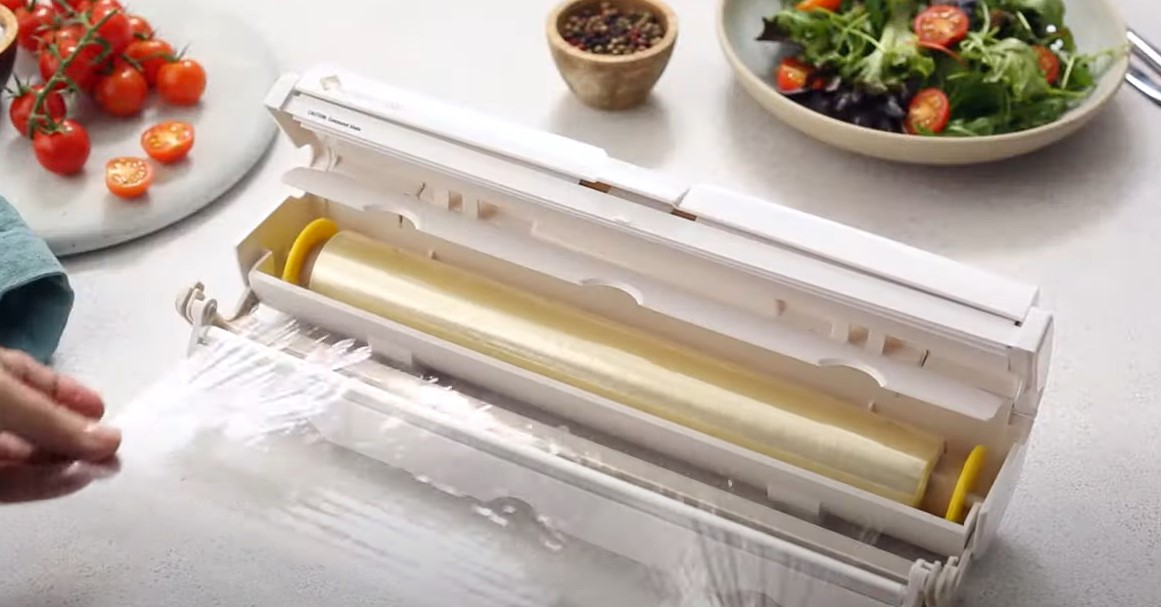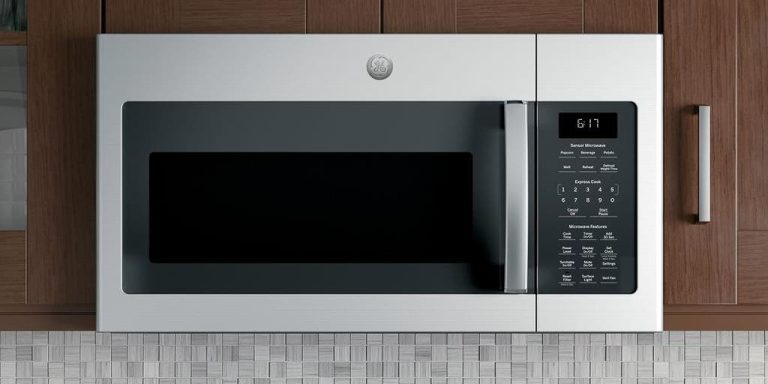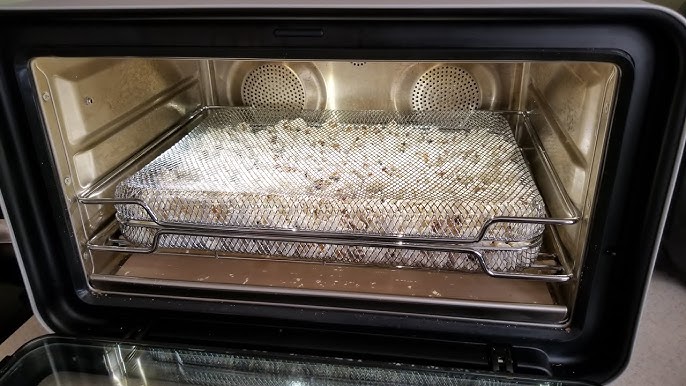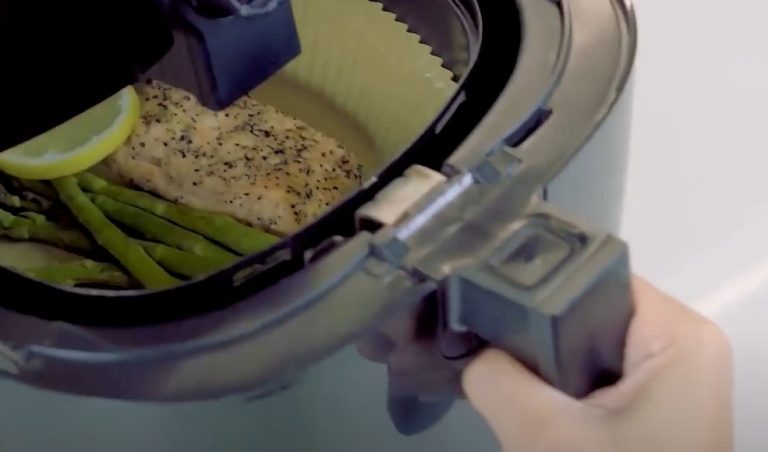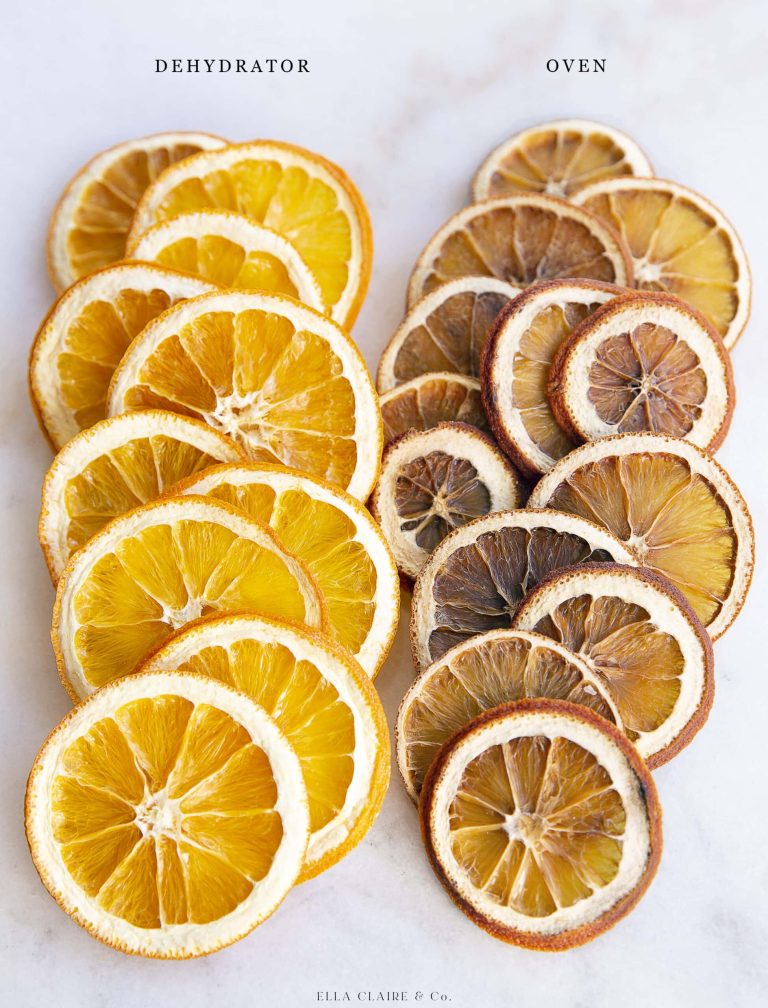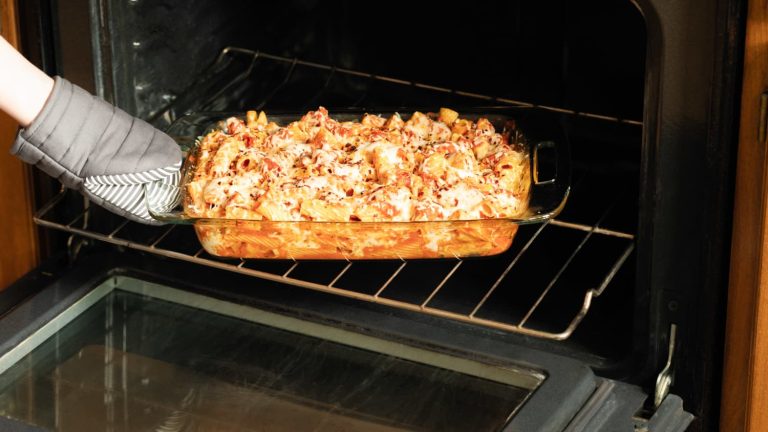Will Saran Wrap Melt in Oven? Discover the Truth
Will Saran wrap melt in oven? Yes, Saran Wrap will melt in the oven. It is made of plastic and is not heat-resistant. When exposed to high temperatures, especially above 220°F (104°C), it can melt and release harmful chemicals. Always use oven-safe materials like aluminum foil or baking paper instead.
This common kitchen conundrum leaves many home cooks puzzled and curious. Before you take the leap and risk a melted mess, let’s uncover the truth about using Saran wrap in the oven. We’ll dive into the safety, practicality, and potential surprises of this everyday kitchen staple.
Whether you’re looking to try a new cooking technique or simply avoid a culinary mishap, this guide has the answers you need. So, keep reading to discover how you can master your kitchen with confidence.
:max_bytes(150000):strip_icc()/Simply-Recipes-Restaurant-Trick-Plastic-Wrap-LEAD-2-31c788ec706342028e4095caf9a90507.jpg)
Credit: www.simplyrecipes.com
Will Saran Wrap Melt in Oven?
Saran Wrap Composition
Saran Wrap, a kitchen staple, should not be used in the oven. It can’t withstand high temperatures and will melt. Keep it for cold storage and reheating only.
Saran Wrap is a common household item, but have you ever wondered what it’s really made of? Understanding its composition is key to knowing how it behaves in different environments, like an oven. Let’s dive into what makes up this clingy kitchen staple and see if it’s oven-friendly.
Saran Wrap: The Basics
Saran Wrap is primarily made of polyvinylidene chloride (PVDC), a type of plastic. This material is known for its excellent ability to keep out moisture and air, making it ideal for food preservation. However, while it excels in the fridge, things get tricky when heat is involved.
Heat Resistance Of Pvdc
PVDC starts to soften at around 140°F (60°C). This means that even the warmest oven setting can pose a problem. If you’re thinking about using it to cover your casserole, you might want to reconsider. Melting plastic is not only a mess but can also release harmful chemicals into your food.
Alternatives For Oven Use
In the kitchen, adaptability is key. Instead of Saran Wrap, try using aluminum foil or oven-safe lids. These alternatives can withstand the heat and keep your meal cooking evenly. Have you ever tried using parchment paper? It’s another great option for baking and roasting.
Safety First: What You Need To Know
Remember the importance of safety in cooking. Using materials that aren’t heat-resistant can lead to unexpected chemical reactions. Have you ever found yourself peeling melted plastic off your favorite dish? It’s definitely not a situation you want to repeat.
Your Kitchen Experience
Have you ever had a kitchen mishap with Saran Wrap or another plastic wrap? Share your story and insights. Learning from each other’s experiences can help us make smarter choices in the kitchen. Understanding the composition of Saran Wrap and its limitations can help you avoid kitchen disasters. Choose the right materials for cooking, and enjoy your culinary creations with peace of mind.
Heat Resistance Of Saran Wrap
Saran Wrap, a popular kitchen item, is known for sealing food freshness. Many people wonder about its heat resistance, especially in ovens. Understanding its properties is crucial to avoid kitchen mishaps.
Understanding The Composition Of Saran Wrap
Saran Wrap is made from polyvinylidene chloride. This material offers excellent moisture barrier properties. It helps keep food fresh by preventing moisture escape.
Despite its benefits, this plastic has limitations. It cannot withstand high temperatures found in ovens. Knowing its heat limits is essential for safe cooking.
Maximum Temperature Tolerance
Saran Wrap has a low melting point. It begins to soften around 220°F. Temperatures in ovens are usually much higher.
Direct exposure to oven heat can cause it to melt. This may lead to a mess and potential food contamination. Always check the temperature guidelines before use.
Safe Uses In Cooking
While not suitable for oven use, Saran Wrap has other applications. It’s perfect for microwave reheating at low temperatures. Ensure the plastic doesn’t touch the food directly.
Another safe use is wrapping food for storage. It creates a tight seal, preserving flavor and freshness. Avoid using it on hot surfaces or near open flames.
Alternatives For Oven Use
For oven-safe options, consider using foil or oven-safe glass lids. These can withstand high temperatures without melting. Foil is versatile for covering dishes or wrapping food.
Using oven-safe alternatives ensures safety and prevents mess. Always choose materials suitable for the cooking method. This keeps food safe and your kitchen clean.
Saran Wrap In Different Cooking Environments
Saran wrap, a popular kitchen staple, can confuse cooks. Especially about its use in different cooking environments. Many wonder if it melts in the oven. Understanding how it behaves in various settings is crucial. This ensures safety and the best cooking outcomes.
Saran Wrap In Microwaves
Saran wrap can be safe in microwaves. It can withstand moderate temperatures. Ensure it doesn’t touch the food. This prevents melting or contamination.
Saran Wrap In Conventional Ovens
In conventional ovens, saran wrap is not safe. It can melt at high temperatures. This might ruin the food and create a mess. Always use oven-safe alternatives. Options like aluminum foil are better.
Saran Wrap In Steam Ovens
Steam ovens use moisture and heat. Saran wrap might withstand mild steam. But, intense heat can cause melting. Check the oven’s temperature before using it.
Saran Wrap In Freezers
Saran wrap works well in freezers. It keeps food fresh and protected. Freezing temperatures do not affect it. It remains intact and effective.
Saran Wrap In Grills
Grills generate high heat. Saran wrap is not suitable. It will melt quickly. Always opt for grill-friendly materials. Choices like grill mats are preferable.
Alternatives To Saran Wrap For Oven Use
Saran Wrap will melt in the oven, posing a risk of ruining your dish. Consider using alternatives like aluminum foil or parchment paper, which can withstand oven temperatures and keep food safe.
In the kitchen, trying new cooking methods can be fun, but safety is crucial. You might wonder if Saran Wrap can be used in the oven. The answer is no; it melts at high temperatures. So, what are your alternatives? Let’s explore some options that can withstand oven heat and ensure your dishes turn out perfectly. 1. Aluminum FoilAluminum foil is a trusty companion in the kitchen. It handles high heat well and won’t melt in the oven. Use it to cover dishes, wrap food, or create a makeshift lid. It’s great for roasting and baking. If you’re worried about sticking, apply a little oil to the foil, and you’re good to go. 2. Parchment PaperParchment paper is another fantastic option. It can handle temperatures up to about 420°F (215°C). Perfect for baking cookies or lining roasting pans. It prevents sticking and makes cleanup a breeze. Check your oven’s temperature, though—too high, and it might scorch. 3. Baking SheetsBaking sheets are versatile and sturdy. They can be used directly in the oven without any issues. Place your food on these sheets for even cooking. They distribute heat evenly, helping your dish cook perfectly. Consider using silicone baking mats on these sheets for non-stick properties. 4. Oven-Safe Glass or Ceramic LidsIf you’re cooking a casserole or a dish that needs covering, consider oven-safe glass or ceramic lids. These lids are designed to withstand high temperatures without warping or breaking. While they might be a bit heavier, they seal in moisture and flavor beautifully. 5. Silicone CoversSilicone covers are flexible and heat-resistant. They can be used in the oven safely. They’re perfect for covering dishes to retain moisture without melting. Next time you bake, try a silicone cover—it might surprise you with its effectiveness. Cooking is about creativity and safety. Have you ever tried using these alternatives in your oven? Which one works best for you?
Safety Tips For Oven Cooking
Cooking in an oven involves heat, and safety must always be a priority. Understanding safe cooking practices helps avoid accidents and ensures delicious meals. Let’s explore key safety tips for oven cooking.
Understanding Oven-safe Materials
Not all materials are suitable for oven use. Glass and metal pans are generally safe. Avoid using materials that can melt, like plastic wrap. Always check labels for heat resistance.
Proper Oven Preheating
Preheating ensures even cooking and prevents undercooked food. Set your oven to the correct temperature before placing dishes inside. This practice also avoids temperature shock to your cookware.
Maintaining A Clean Oven
Regular cleaning prevents smoke and fire hazards. Grease and food particles can ignite at high temperatures. Use safe cleaning methods to keep your oven in optimal condition.
Monitoring Cooking Times
Keep an eye on cooking times to prevent burning. Use a timer to track how long food has been in the oven. This helps maintain food quality and prevents overcooking.
Using Oven Mitts And Trivets
Protect your hands from burns with oven mitts. Always use trivets to place hot dishes on countertops. This prevents heat damage and keeps your kitchen safe.
Checking For Smoke And Smells
Unusual smoke or smells can indicate a problem. Stop cooking and check your oven if you notice anything strange. Ensuring safety involves responding promptly to potential issues.
:max_bytes(150000):strip_icc()/__opt__aboutcom__coeus__resources__content_migration__mnn__images__2017__11__plastic_wrap-3b25498c60a5460b98e58d015f480ba6.jpg)
Credit: www.treehugger.com

Credit: www.instagram.com
Frequently Asked Questions
Can You Put Saran Wrap In The Oven?
Saran Wrap should not be used in the oven. It melts at high temperatures, potentially causing a mess and releasing harmful chemicals.
What Temperature Does Saran Wrap Melt?
Saran Wrap melts at around 220°F (104°C). Always keep it away from heat sources like ovens or stovetops to avoid melting.
Is It Safe To Use Saran Wrap For Cooking?
Using Saran Wrap for cooking is not safe. It can melt and leach chemicals into food when exposed to high heat.
Conclusion
Saran Wrap is not suitable for oven use. It melts easily. Use alternatives like aluminum foil for safe cooking. Avoiding melted plastic prevents food contamination. Always check packaging instructions for heat limits. Choosing the right wrap keeps your meal safe.
Remember, food safety is important. Protect your dishes from unwanted chemicals. Stay cautious with high heat. Opt for oven-safe materials instead. Your cooking experience will be better. Keep your kitchen safe and healthy. Enjoy delicious meals without worry.
Related Article
- Who Makes the Best Over the Range Microwave Oven? Top Picks
- Wood Stone Ovens: Transform Your Culinary Creations
- Yellow Rice in Oven: Perfectly Fluffy Every Time
- Zanussi Built in Single Oven: Ultimate Cooking Experience
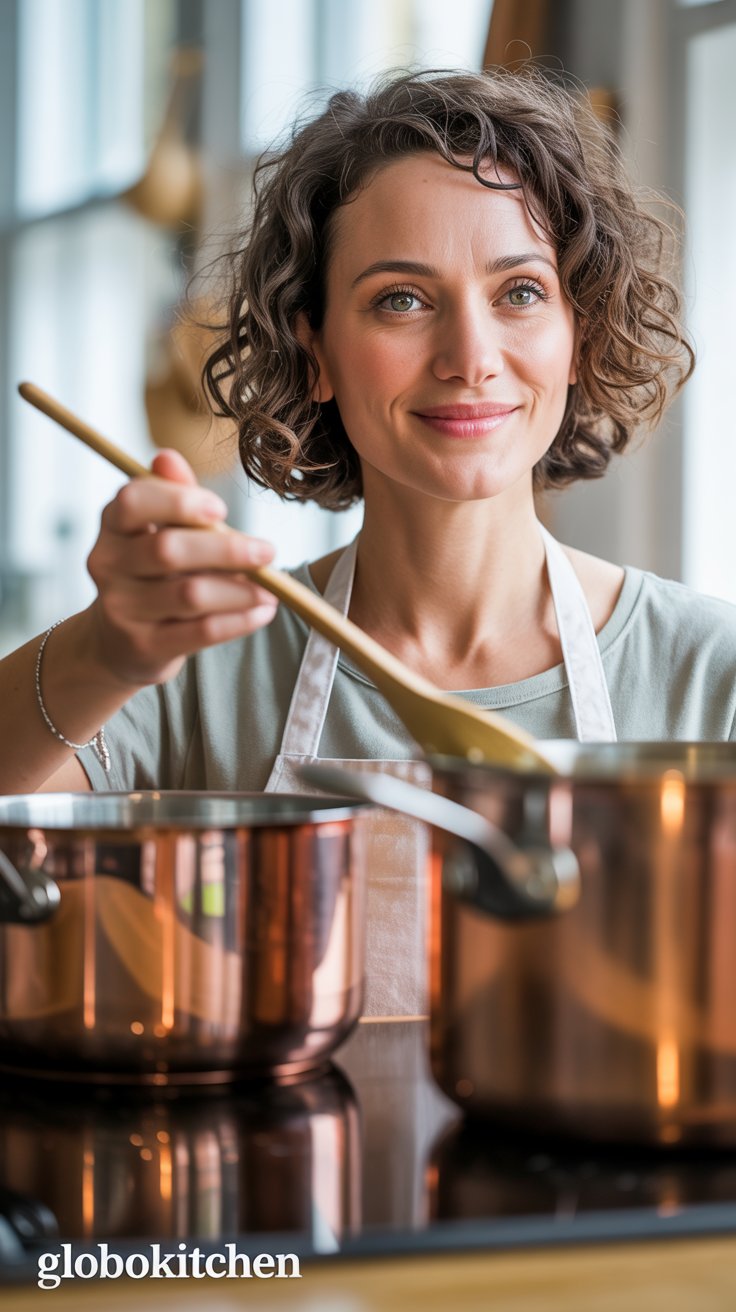
Hi there, my name is Kitty Wilson and I am the founder of Globokitchen.com. Professionally, I am a chef and start my cooking journey since 2009. Stay tuned to get splendid cooking tips, ideas, and hacks

